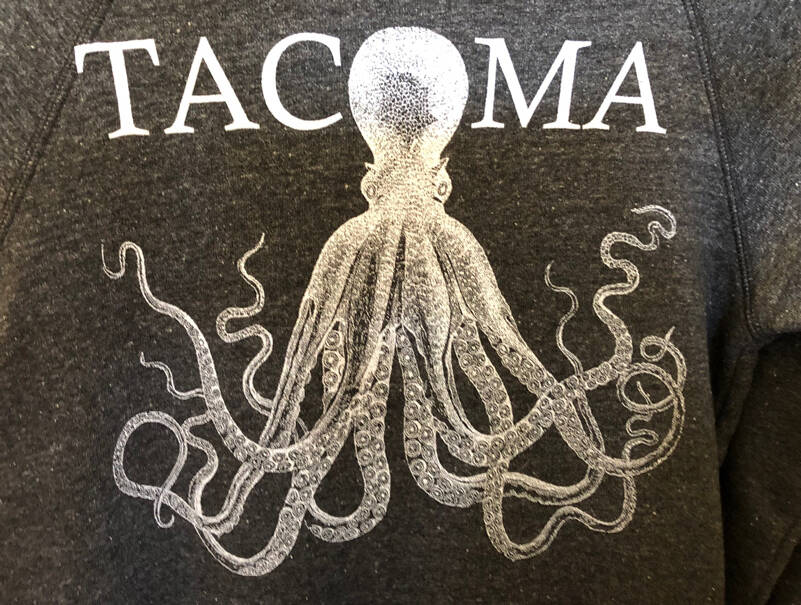By Morf Morford, Tacoma Daily Index
I recently attended an in-person neighborhood council meeting for the first time in a couple years. I had served on the board of one for several years, and was even the chair for a couple years. I had forgotten what it was like to be in the midst of people I did not know, but who shared a passion for the well being of their community.
Not everyone shared the same passion of course, and not everyone agreed how to get to those passions that were shared. But at least, for better or worse, we could see who cared and, to a large degree, what they cared about. And you see, by its absence, what it is that people don’t care about.
Tacoma’s neighborhood council program is volunteer – which simply means that no one, and no agenda, is sponsored, advocated or supported by anyone except those who, in a practical way, have an interest or direct stake in the issue.
If you have been unduly impacted by cable news channels, you might expect to see polarized audiences agitated by “culture war” slogans and agendas – but that’s not likely to be what you see or hear.
What you are likely to see are normal looking people (as opposed to vigilante driven stereotypes) who are either informed or curious (or both) who want to know what can be done about issues as varied and immediate as potholes in local neighborhoods to traffic in local school zones. And, of course, city, if not nationwide, issues like homelessness and crime – especially as they ooze into established residential neighborhoods.
Neighborhood council programs tend to get criticism for two reasons. To me they seem contradictory.
The first is that, by being volunteer, they do not bring authority and expertise to any given situation – they are, by definition, advisory only, with no actual power to set or modify policies or craft laws.
The second major criticism is that they tend to be a consolidation of NIMBY (Not In My Back Yard) voices. Sometimes that’s true – but just as often the opposite is true. I’ve seen my neighbors stand up to make a difference at least as often as I have seen them lobby to keep certain businesses, programs or agencies out.
And I kind of like the idea of community advocacy being more of a passion than a job. People at those meetings care about their community – they are not there because they are paid to be there.
A potluck of ideas
If you picture a potluck dinner, where people bring their own dish to share, and with the expectation to try out those unpredictable dishes others might bring, you have sense of what to expect from a neighborhood council meeting. An agenda is almost always presented (and mostly followed) but when it comes to “new business” citizen comments or questions addressed to guest speakers, literally anything may come up.
I am always astounded by what some people care about, for example. And I am also impressed by the level of experience and knowledge some people come with. From building codes to arcane local history to past (and often bewildering) political policies and procedures, a room full of people can bring a perspective and depth of knowledge few of us would have ever imagined possible.
And, like any potluck, there might be a few items on the menu that may not be your style or to your liking – but it is just as likely that an undiscovered treasure lies within sight, or even within reach thanks to some unassuming neighbor.
Not everyone will agree
In any given neighborhood, on any issue, you will have those of different ages, life experiences and proximity to either the issue or any proposed responses to it.
Maybe it’s just me, but I get nervous when “everyone agrees” or when I hear that “everyone knows”. I know human nature too well. If “everyone agrees”, it is either because someone isn’t listening or some voices have been excluded – often deliberately, or even worse, dismissed or diminished semi-automatically.
I’m not alone in this. In ancient Jewish law, for example, a person could not be convicted of a capital crime if the guilty verdict was unanimous.
If “everyone agrees” it is less likely that the evidence was convincing rather than that collusion or a shared bias was in play.
I don’t know about anyone else, but unanimous votes don’t convince me of anything – except that no one was willing to question the prevailing logic or conclusion.
If, on any topic worth discussing, you say something that everyone agrees with, you obviously have not said anything new or interesting. And any statement that everyone “agrees with” doesn’t contribute anything to the conversation.
We all bring our presuppositions and assumptions into every meeting and conversation. And they seem obvious and unassailable to us. Until someone has the audacity to have a different point of view.
In any serious setting, on any topic of importance, the worst and most worthless team members will be “yes” people – those who will agree just to get by.
If you have “yes” people on your team, they have proven, probably more than once, that they are unnecessary and are not contributing to the conversation.
The Catholic Church knew this. In 1587 Pope Sixtus V formally established the position of advocatus diaboli, which is Latin for, yes, “devil’s advocate”; a church appointed official whose job it was to raise objections and challenge any consensus.
Challenging assumptions and weak arguments should always be welcome. Don’t we all want our conclusions to be tested and proven solid?
Besides, our cultural heroes are more likely to be those that stood up for an unpopular cause than those that agreed with what everybody else was already saying. That’s what you’re likely to encounter at your local neighborhood council meeting. Don’t expect everyone to agree, or even care (much) about any given topic.
Neighborhood council meetings are about far more than solving problems; they are perhaps mostly about weaving together the pulsing, often tangled tapestry of a neighborhood. If you’d like to know more about neighborhood councils or join one near you, start here.





